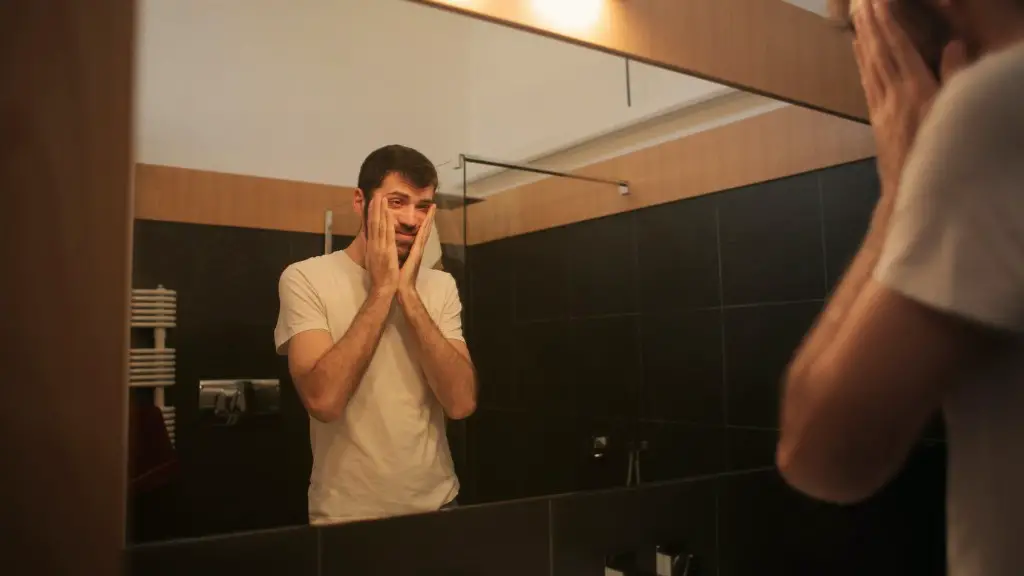Stress is a major factor in many of our lives today. It can manifest itself in different ways, both physically and mentally. One of the most common physical manifestations of stress is lower back pain. Many people suffer from this preventable condition. It is important to find ways to manage stress in our lives in order to prevent lower back pain and other health problems.
There is no definitive answer to this question as everyone experiences stress differently and reacts to it in different ways. Some people may find that their back pain is worsened by stress, while others may not notice any difference. It is thought that stress can contribute to back pain by causing the muscles to tense up and increasing the level of pain signals sent to the brain.
Can stress and anxiety cause lower back pain?
Back pain is a common symptom of psychological stress. Stress can cause back pain by causing muscle tension and inflammation. Stress can also make existing back pain worse. If you are experiencing back pain, it is important to consult with a doctor to rule out any underlying physical causes.
Anxiety can cause back pain in a number of ways. It can lead to muscle tension, which can in turn lead to pain and stiffness. It can also cause the muscles to spasm, which can be extremely painful. Pain relievers can help to some extent, but if the anxiety is not relieved, the back pain will likely continue.
How do I get rid of lower back pain from stress
Stress-related back pain is a common problem that can be effectively treated with a multi-disciplinary approach. This may include physical therapy to address the physical causes of the pain, as well as medications to address both the physical and emotional factors contributing to the pain. In many cases, a combination of these treatments is most effective in providing relief.
Back pain is a common condition that can be both acute and chronic. Acute back pain is usually caused by an injury, such as a muscle strain, and usually goes away within a few weeks. Chronic back pain, on the other hand, lasts for several weeks or longer and can be caused by a variety of factors, including posture, arthritis, and disc degeneration. Both acute and chronic back pain can be associated with psychological distress, such as anxiety or depression. Psychological distress is a common reaction to the suffering aspects of back pain, even when symptoms are short-term and not medically serious.
Why does my lower back hurt so much all of a sudden?
Acute low back pain is most often caused by a sudden injury to the muscles and ligaments supporting the back. The pain may be caused by muscle spasms or a strain or tear in the muscles and ligaments. Causes of sudden low back pain include: Compression fractures to the spine from osteoporosis.
If you are experiencing back pain that does not improve after a few weeks of home treatment, or if the pain is severe or getting worse, you should see a GP.
How do I know if my pain is from stress?
Stress can cause your muscles to tense up — and over time, that can lead to pain and soreness in virtually any part of the body. The most common stress-related aches and pains are in the neck, back, and shoulders. If you’re constantly feeling stress in these areas, it’s important to find ways to relax and relieve the tension. This might include things like massage, yoga, or simply taking some time each day to allow your muscles to rest.
You can experience physical symptoms of stress when you are under a lot of pressure. These symptoms can include headaches, chest pain, stomach problems, muscle tension, and more. If you are experiencing any of these symptoms, it is important to talk to your doctor to see if they are related to stress.
How long does a stress reaction in the back take to heal
If you have a stress reaction, it means that the bone is weakened but has not yet progressed to a fracture. The outlook with treatment is excellent – in one recent study, every case of a stress reaction healed with an average of two and a half months of rest, and many within six weeks.
One common cause of lower back pain in women is poor posture. Poor posture puts unnecessary strain on the spine and muscles in the back, which can lead to pain and discomfort. Women are especially susceptible to poor posture due to factors such as wearing high heels or carrying heavy purses.
What are 3 causes of lower back pain?
There are a few different things that can cause back pain, including muscle or ligament strain, bulging or ruptured disks, and arthritis. Muscle or ligament strain can happen from repeated heavy lifting or a sudden awkward movement. Bulging or ruptured disks usually happen from disks acting as cushions between the bones in the spine. Arthritis can affect the lower back from osteoarthritis or osteoporosis.
Chronic back pain can be caused by a number of different things, but the most common include arthritis of the spine, spinal stenosis, and disc problems. Arthritis of the spine is caused by the gradual thinning of the cartilage inside the spine, which can lead to pain and stiffness. Spinal stenosis is a narrowing of the spinal canal that can cause compression of the nerves and lead to pain. Disc problems, such as a herniated or bulging disc, can also cause chronic back pain.
How can you tell if back pain is muscular or something else
A pulled muscle would not feel hot, tingling, or electric like an irritated nerve root would. The pain would only subside while you are relaxed and resting, as the tension and spasms are alleviated. However, the pain would most likely flare up when you get up to move again.
There are two types of back pain: acute and chronic. Acute back pain lasts for a few days to a few weeks and usually resolves on its own with self-care. There is no long-term loss of function with acute back pain. Chronic back pain is pain that continues for 12 weeks or longer, even after an initial injury or underlying cause of back pain has been treated. Chronic back pain can cause a loss of function and may require treatment from a healthcare provider.
What is the most common cause of lower back pain?
If you’re experiencing lower back pain, it’s most likely due to a strain or sprain. These are the most common causes of lower back pain and usually heal within a few days to a few months. However, if the pain is severe or lasts longer than a few weeks, it could be a sign of a more serious condition and you should see a doctor.
If you are experiencing persistent lower back pain, it is important to consult with your doctor to rule out any potential underlying causes, including cancer. While lower back pain is a common occurrence, it can be a sign of cancer in some cases. cancers that can cause lower back pain include spinal, colorectal, and ovarian cancer. In addition to lower back pain, individuals with these cancer types may also experience other symptoms. An early diagnosis is key to receiving the best possible treatment and outcome.
What are 5 emotional signs of stress
Stress can have a negative impact on your mental and emotional well-being. It can make you feel irritable, angry, impatient or wound up. You may feel over-burdened or overwhelmed. You may feel anxious, nervous or afraid. You may feel like your thoughts are racing and you can’t switch off. You may be unable to enjoy yourself. You may feel depressed. You may feel uninterested in life. You may feel like you’ve lost your sense of humour.
There are a number ofdifferent ways that you can reduce stress in your life. Exercise, mindfulness, spending time with a pet, minimizing screen time, and getting outside more often are all effective methods. Pick and choose the ones that work best for you and make sure to incorporate them into your daily routine.
Final Words
There is no definitive answer to this question as everyone experiences stress differently and reacts to it in different ways. Some people may find that their back pain is exacerbated by stress, while others may find that it doesn’t have much of an impact. However, if you are experiencing lower back pain, it is important to speak to a healthcare professional to determine the cause and to find the best treatment plan for you.
While stress may not be the direct cause of lower back pain, it can certainly contribute to or exacerbate the condition. When we are stressed, our muscles tense up and can become tight and strained. This can lead to pain in the lower back and other areas of the body. Stress can also compromise our immune system, making us more susceptible to injuries and pain. So, while we may not be able to say that stress causes lower back pain, it is certainly a factor that can contribute to the condition.





